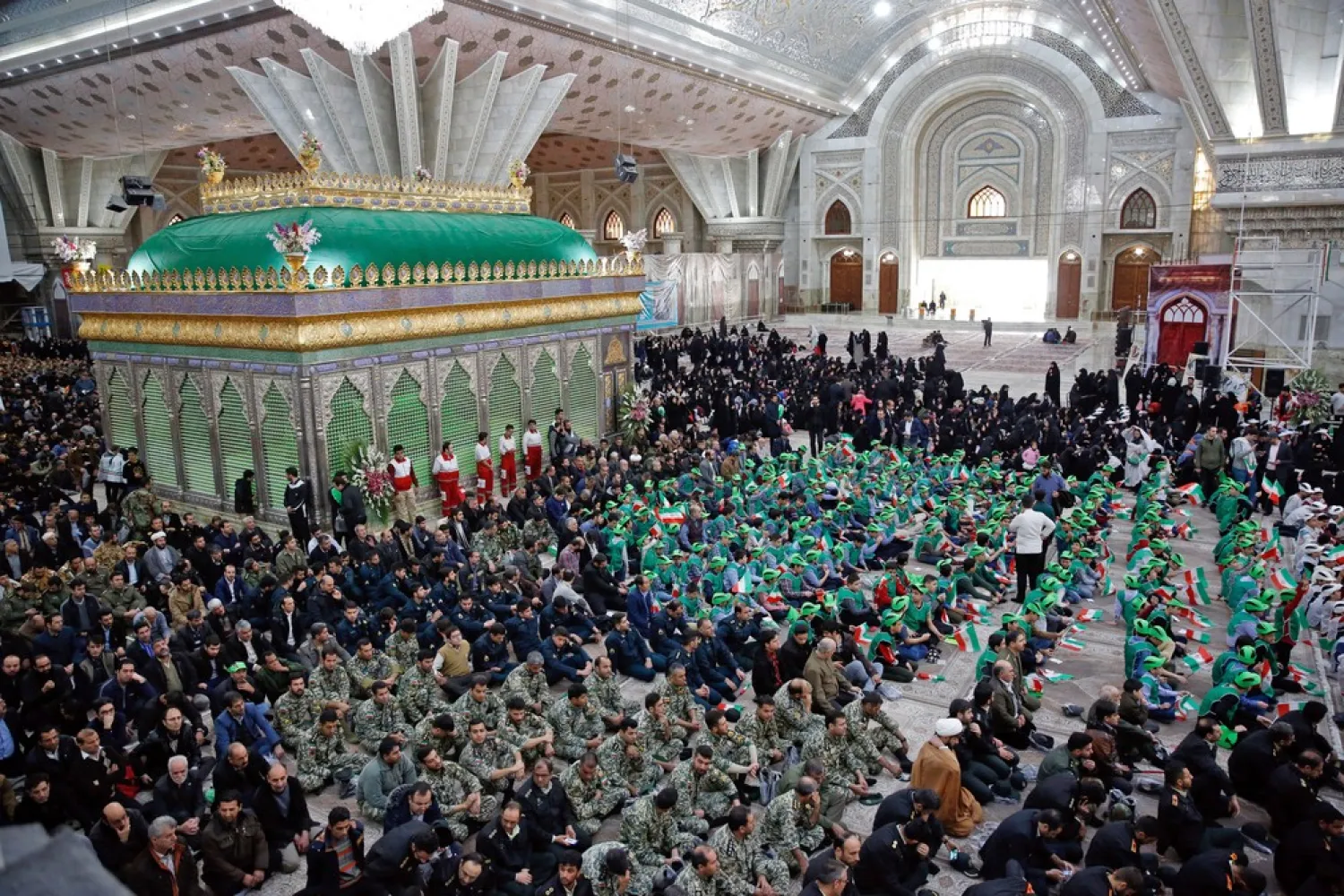Thousands of Iranians packed the mausoleum of the Islamic republic's founder Ayatollah Ruhollah Khomeini in Tehran on Friday to celebrate the 40th anniversary of the revolution that overthrew a centuries-old dynasty.
Ceremonies for the 1979 revolution were launched at 9:33 am (0603 GMT), the exact time that Khomeini returned to Iran after 14 years in exile and his plane touched down at Tehran airport.
As an army band played revolutionary anthems, the huge hall of the mausoleum was filled with people from all walks of life, among them schoolchildren dressed in the red, white and green of the Iranian flag.
Ayatollah Ahmad Jannati, head of the influential experts assembly which appoints Iran's supreme leader, delivered a keynote speech rebuking political factions seeking better ties with Washington.
"Curses on the wrong school of thought that thinks we can't run the country unless America helps us," AFP quoted him as saying.
"America's power is on the decline, we should not be afraid of America," Jannati said as the crowd shouted slogans such as "Death to America" and "Death to Israel".
From the very start, the Islamic republic faced challenges from communist former anti-shah allies as well as from separatist minorities in border regions of Iran.
In September 1980, Saddam Hussein's Iraq launched a war that dragged on for eight years.
And the November 1979 seizure of the US embassy in Tehran and hostage-taking of its staff for more than 400 days triggered the still ongoing hostility between the two countries.
Iran's economy has nosedived since Washington reinstated sanctions after US President Donald Trump last May withdrew from a 2015 nuclear deal between Tehran and world powers.
But defiance rang out at the mausoleum. "With the leadership we are alive and we will endure," the choir chanted.
Forty years have passed since the revolution and throughout these 40 years the whole world tried to destroy it... but they were unsuccessful" said Jannati.









